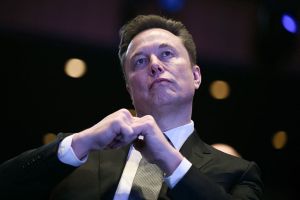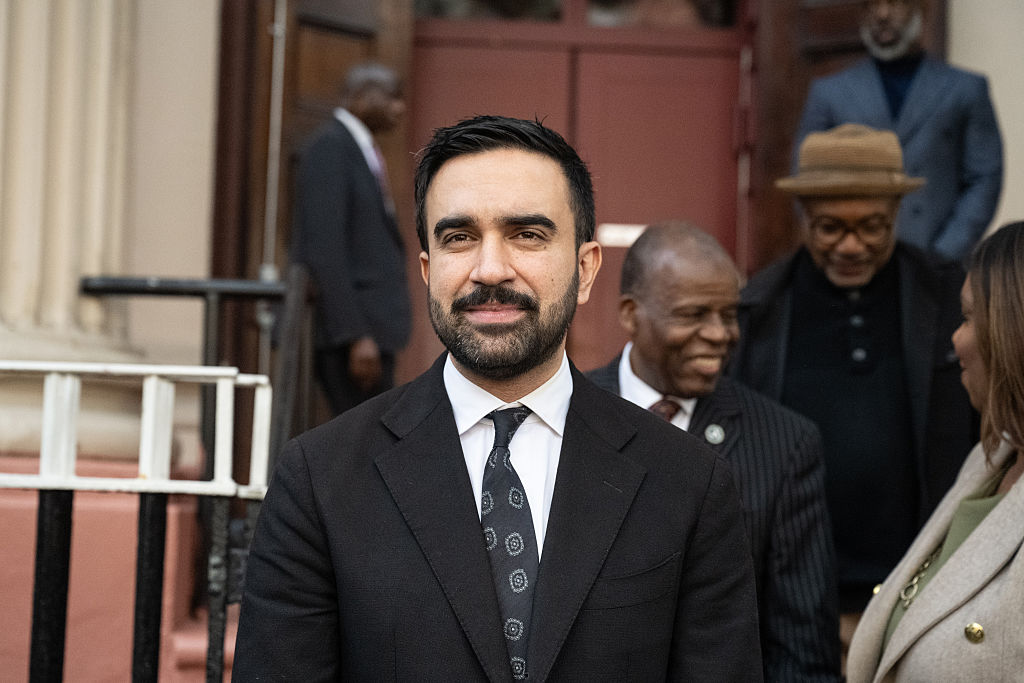The news that Ali Abbasi’s Donald Trump drama The Apprentice has flopped in its first weekend at the US box office, taking in a mere $1.6 million from 1,740 locations across the country, may not be as surprising as liberal critics might suspect. The film received decent rather than adulatory reviews, many of which suggested that its portrayal of the young Donald Trump and his relationship with his mentor Roy Cohn was either too generous or unfairly maligned the younger Trump, depending on where your individual politics stood. Unsurprisingly, the film did its best business in Democrat-voting cities like New York, Washington, DC and San Francisco, and equally unsurprisingly, it did not particularly connect with many of the audiences who saw it, who gave it a lackluster B- rating, according to the exit polling service Cinemascore.
That The Apprentice is now certain to be a box-office flop, even on a modest budget of $16 million, suggests that US audiences are not willing to pay money to see even a fictionalized version of the Donald Trump circus in their theaters when they can watch the real-life thing on their television every night. It stands in significant contrast to Sean McNamara’s recent biopic of Ronald Reagan, starring Dennis Quaid, which has made far more money at the box office — nearly $30 million worldwide — and which has an unashamedly laudatory view of its subject which has connected well with a predominantly older, male Southern audience who are only too happy to line up and pay for tickets to see a film that expresses a viewpoint that they agree with.
Nevertheless, $30 million is not that much money in today’s climate; Reagan also cost $25 million, meaning that its path to profit at the theater will be tricky, although it is likely to become an immensely popular attraction on the streaming services. Both films prove that political biopics may attract big-name stars, but they are also extremely hard to sell to mainstream audiences. The only example in the past couple of decades that has been a significant box office hit was Steven Spielberg’s Lincoln, and that owes its appeal to its director’s name, as well as an Oscar-winning performance by Daniel Day-Lewis in the lead. Crucially, it was also not dealing with recent politics, meaning that it could be enjoyed as a historical drama rather than a present-day analogy.
Recent films about right-wing figures made by left-wing directors — such as Oliver Stone’s W. and Adam McKay’s Dick Cheney satire Vice — have not been financial successes, because there is no clear audience for them. It might well matter to the cloistered Hollywood elite that they can take aim at these bogeymen, but it is far less important to your average moviegoer to involve themselves in what can often seem like a private feud between one rich, middle-aged white man and another, where the major difference is their political affiliation. While Abbasi has claimed to be non-partisan and that The Apprentice is intended as a balanced and measured account of the young Trump, few have been convinced, and the film has flopped as a result.
This is not a problem restricted to American theater. Both Gillian Anderson and Meryl Streep won awards for their performances as Margaret Thatcher, but neither deserved them. Anderson pitched her appearance in The Crown so far into the depths of caricature that it seemed as if she was desperate to reassure her audience that she was, herself, nothing like the dreadful woman she was playing, whereas Streep’s turn in The Iron Lady alternated between sympathetic account of a woman succeeding in a man’s world and a damning view of a power-hungry right-winger, apparently without any balance between the two.
Politicians fascinate us because they are venal, theatrical and ambitious. We vote for them in our millions and then loudly castigate them for breaking promises that no realistic human being could ever have imagined that they could, or would, keep. They are larger-than-life figures who do not need the big screen to be made immortal, and the next time that a filmmaker believes that they simply have to tell the Kamala Harris story, they should politely be shown the box office ignominy that their film will endure, and asked whether that’s really such a good idea, after all.


























Leave a Reply